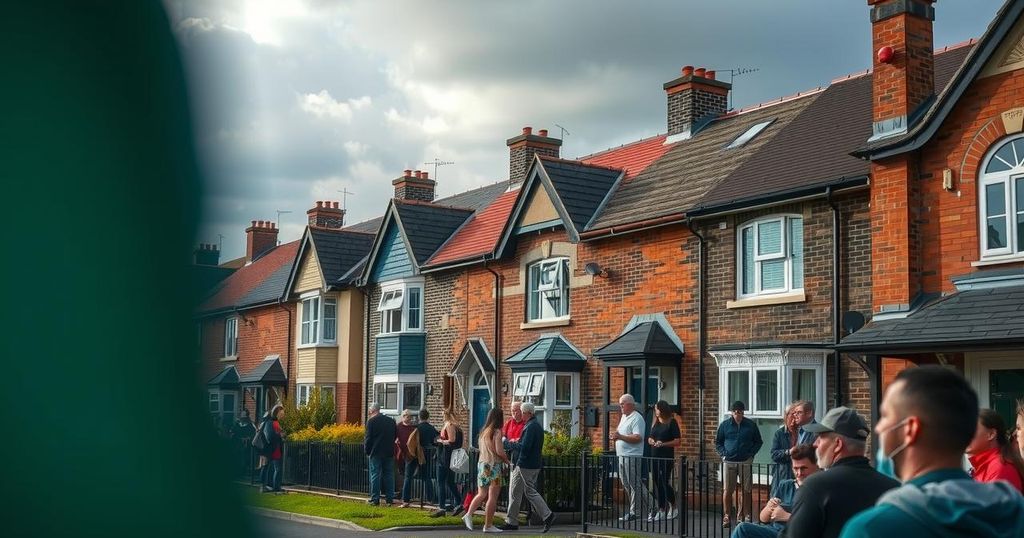Ireland’s Tight Election: Centre-Right Parties Face Off Against Sinn Fein
Ireland is witnessing a tightly contested election with Fine Gael, Fianna Fail, and Sinn Fein each garnering roughly 20 percent of the vote. Incumbents Fine Gael and Fianna Fail face challenges amid rising public dissatisfaction regarding the housing crisis. As ballots are cast, the results may take time to be finalized due to the proportional representation system in use.
Ireland is currently engaged in a closely contested election, characterized by a fierce competition between the centre-right parties Fine Gael and Fianna Fail and the leftist-nationalist party Sinn Fein. Polling data indicates that all three parties are vying for approximately 20 percent support. This election follows a coalition formed between Fine Gael and Fianna Fail after the 2020 election, during which Sinn Fein emerged as the popular choice but was excluded from governance due to its historical connections with the Irish Republican Army.
Polling suggests that if these results are replicated on election day, Fine Gael and Fianna Fail may retain power. The coalition, formed due to mutual policy alignments on economic and social issues, has faced significant public scrutiny over its handling of the housing crisis and the overall management of public services. Prime Minister Simon Harris announced tax cuts and increased spending following a substantial budget surplus, yet his party’s popularity waned following a contentious incident with a care worker that gained traction on social media.
Sinn Fein, which led polling for most of 2022 and 2023, faced challenges as its support faltered due to issues surrounding its liberal immigration stance amidst escalating cost-of-living challenges. Ireland’s severe housing shortage has exacerbated frustrations as rental costs and property prices soar. The country is experiencing wide discontent regarding the effective use of public finances, despite its advantageous fiscal position bolstered by substantial tax revenues from multinational corporations.
Ballots are being cast across Ireland’s 43 constituencies, with counting scheduled to commence on Saturday morning. However, due to the intricate nature of the country’s proportional representation voting system, complete election results may take several days to finalize.
This election is crucial in the context of Ireland’s ongoing housing crisis, which has become a predominant concern for voters. The economic policies and social issues articulated by the parties reflect a response to public dissatisfaction with government management of essential services, especially during a period of significant economic growth known as the “Celtic Tiger” boom. As political dynamics shift, understanding the historical and ideological frameworks of the competing parties—particularly the exclusion of Sinn Fein despite its popularity—is essential for comprehending the current electoral landscape.
In conclusion, Ireland’s election illustrates a significant political moment, marked by competing visions for governance amidst urgent social issues such as the housing crisis. The potential retention of power by the coalition partners Fine Gael and Fianna Fail against the backdrop of Sinn Fein’s challenge signifies a critical juncture in Irish politics. With further challenges related to public services and economic inequality looming, the outcome of this election could redefine Ireland’s political future.
Original Source: www.aljazeera.com




Post Comment